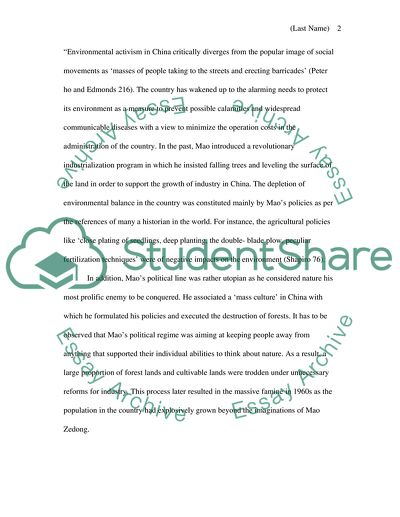Cite this document
(Changing Politics Of Environmentalism In Chinese Civil Society Essay - 1, n.d.)
Changing Politics Of Environmentalism In Chinese Civil Society Essay - 1. https://studentshare.org/politics/1570839-assess-the-changing-politics-of-environmentalism-in-chinese-civil-society
Changing Politics Of Environmentalism In Chinese Civil Society Essay - 1. https://studentshare.org/politics/1570839-assess-the-changing-politics-of-environmentalism-in-chinese-civil-society
(Changing Politics Of Environmentalism In Chinese Civil Society Essay - 1)
Changing Politics Of Environmentalism In Chinese Civil Society Essay - 1. https://studentshare.org/politics/1570839-assess-the-changing-politics-of-environmentalism-in-chinese-civil-society.
Changing Politics Of Environmentalism In Chinese Civil Society Essay - 1. https://studentshare.org/politics/1570839-assess-the-changing-politics-of-environmentalism-in-chinese-civil-society.
“Changing Politics Of Environmentalism In Chinese Civil Society Essay - 1”. https://studentshare.org/politics/1570839-assess-the-changing-politics-of-environmentalism-in-chinese-civil-society.


